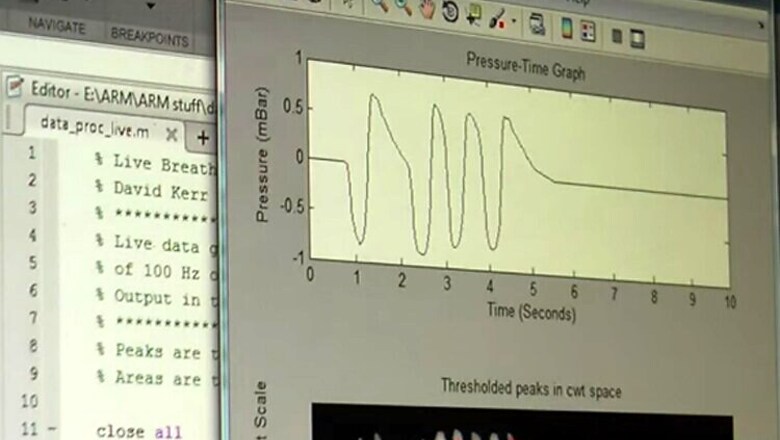
views
London: Scientists, including an Indian-origin doctor, have developed a new device that gives words to the thoughts of severe paralysis victims by analysing and interpreting their breathing patterns.
The prototype analyses changes in breathing patterns and converts 'breath signals' into words using pattern recognition software and an analogue-to-digital converter.
A speech synthesizer then reads the words aloud.
The device can transform the lives of millions of sufferers of severe paralysis and loss of speech, researchers said.
"This device could transform the way people with severe muscular weakness or other speech disorders communicate," said Atul Gaur, consultant anaesthetist at Glenfield Hospital, England.
"In an intensive care setting, the technology has the potential to be used to make an early diagnosis of locked-in syndrome (LIS), by allowing patients, including those on ventilators, to communicate effectively by breathing -- an almost effortless act," Gaur added.
Co-researchers David Kerr and Kaddour Bouazza-Marouf from Loughborough University said the device learns from its user, building up its knowledge as it goes.
It allows the user to control how he or she wishes to communicate "effectively enabling them to create their own language by varying the speed of their breathing.


















Comments
0 comment